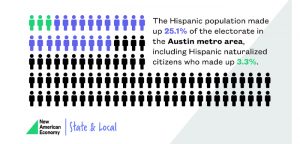By Moses Leos III
Federal changes are on the horizon as updates to the standards regulating overtime pay are slated to go into effect Dec. 1.
But concern is rising for some as the changes may in turn cause employers to cut employees in order to meet the new standard.
On May 16, President Barack Obama announced publication of the Department of Labor’s “Final Rule” updating overtime regulations, according to the U.S. Department of Labor website.
The regulations increase the salary threshold for most white-collar workers to be entitled for overtime pay from roughly $23,000 per year to $47,476 per year. The new salary level was set at the 40th percentile of earnings of full-time salaried workers in the “lowest-wage Census region,” which is the south.
The total compensation requirement for highly compensated employees (HCE) was raised from $100,000 to $134,000.
According to the DOL, roughly 4.2 million workers will have overtime protection as a result of the updates. Approximately 56 percent of those employees, or 2.4 million, are women, according to the DOL website.
In Texas, roughly 370,000 workers would be eligible for overtime protection as a result of the update, which will also affect nonprofit organizations.
In addition, a mechanism was established for updating the salary threshold every three years to “ensure that they continue to provide useful and effective tests for exemption.”
The DOL estimated employers will spend roughly $592.7 million to comply with the new rule, according to information on the Society for Human Resource website.
The new rules, however, has led to 21 states, including Texas, to file a lawsuit against the DOL, where they seek a preliminary and temporary injunction as they believe the new rules are unlawful.
In addition, the U.S. Chamber of Commerce, along with more than 50 business groups, filed a separate lawsuit challenging the DOL’s new rule.
J.R. Gonzales, Buda Area Chamber of Commerce Managing Director, is concerned about the threshold increase, which he said was raised 113 percent “virtually overnight.”
His concern extended to businesses that attempt to get employees exempt from the new overtime laws to the new standard.
He said the result could cost companies money, which could lead to employers cutting hours, potentially turning full-time employees to part time.
While he was hesitant to say the new law could place companies out of business, Gonzales said the burden falls upon businesses, especially small business owners.
He said the new rule would affect the bottom line for some companies.
“(Businesses) have to do more number crunching. Some businesses it may not affect that much, while others it may adversely affect them,” Gonzales said. “It may be two to three years before it stabilizes.”
For Gonzales and Kyle Area Chamber of Commerce CEO Julie Snyder, outreach and educating their members is the focus before the rule goes into effect.
Snyder said the Kyle Chamber has been in contact with the U.S. Chamber of Commerce, which has offered webinars to help employers better educate themselves to the new rule.
In Kyle, Snyder said she hasn’t heard from many Kyle businesses when the information regarding the rule change came out. She said the few businesses that did call said they believe it didn’t pertain to them.
“I think it’s our job to really get that information out,” Snyder said. “I’m hoping that we can offer a free webinar and to have it here in the Kyle Chamber office, to invite members that it might pertain to.”
But Snyder was uncertain what the impact the new rule could have on businesses. She joined Gonzales on concerns the new rule could lead to employers working around it to possibly save money.
“The most important thing is to educate our members,” Snyder said.










